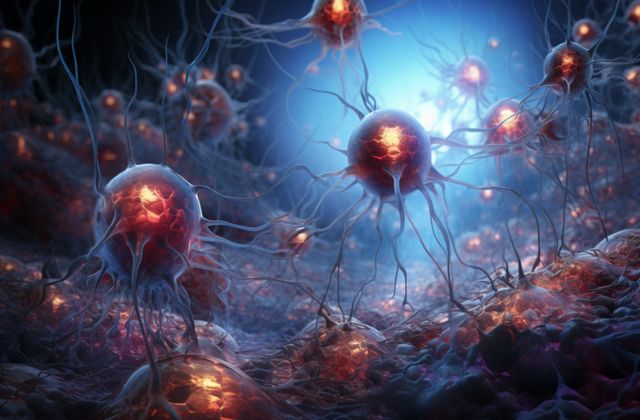
Have you ever experienced a sudden rush of euphoria, a feeling of being on cloud nine, or a sense of altered consciousness without the influence of drugs or alcohol? It’s a perplexing phenomenon that leaves many people questioning their sanity. How is it possible to feel high while being completely sober?
Why Do I Feel High When Im Not
Neurotransmitter Imbalances
Neurotransmitters, such as dopamine and serotonin, play a significant role in regulating our mood, emotions, and overall mental well-being.
- Dopamine, referred to as the “feel-good” neurotransmitter, is responsible for feelings of pleasure and reward. When dopamine levels are elevated, it can create a heightened sense of euphoria and elation. Conversely, low dopamine levels may result in feelings of depression or low motivation.
- Serotonin is involved in regulating mood, appetite, and sleep. Imbalances in serotonin levels can lead to changes in mood and emotions. Low serotonin levels, for instance, have been associated with feelings of anxiety and depression, while elevated levels can induce a sense of happiness and well-being.
It is important to note that neurotransmitter imbalances can occur due to various factors, including genetic predispositions, lifestyle choices, and even certain medications. For example, some antidepressant medications work by regulating neurotransmitter levels, which can potentially impact the experience of feeling high while being sober.
Hormonal Fluctuations
Hormones, the chemical messengers of the body, play a vital role in regulating numerous bodily functions, including mood and emotions. .
In women, hormonal shifts during the menstrual cycle can lead to changes in mood and emotions. The rise and fall of estrogen and progesterone levels throughout the cycle can result in heightened sensitivity, mood swings, and a general sense of euphoria or elation. Many women report feeling more energetic, creative, and even a bit “high” during certain phases of their menstrual cycle.
Similarly, hormonal fluctuations during pregnancy or menopause can also contribute to feelings of being high.
Medical Conditions
- Thyroid disorders such as hyperthyroidism or hypothyroidism, can significantly impact mood and emotions. Hyperthyroidism, characterized by an overactive thyroid gland, can lead to symptoms such as restlessness, anxiety, and increased energy levels, creating a feeling of being high.
- Adrenal gland dysfunction such as adrenal insufficiency or Cushing’s syndrome, can also contribute to feeling high while being sober. Adrenal insufficiency occurs when the adrenal glands do not produce enough cortisol, leading to fatigue, dizziness, and potentially a sense of detachment or feeling high.
- Epilepsy and seizures can also lead to feelings of being high. During a seizure, the brain’s electrical activity becomes disrupted, which can cause a range of sensations, including altered consciousness, heightened emotions, and even a sense of detachment from reality.
Psychological Causes of Feeling High
Psychological factors, such as anxiety, dissociation, and certain psychiatric disorders, can induce a high sensation and alter our perception of reality.
Anxiety and Stress-Induced High
Anxiety, a common psychological condition characterized by excessive worry, fear, and apprehension, can lead to a high sensation. When we experience anxiety, our body’s natural stress response, also known as the fight-or-flight response, is activated.
The surge of stress hormones can create a state of heightened alertness and arousal, leading to physical sensations that mimic the feeling of being high. Increased heart rate, rapid breathing, heightened sensory perception, and a rush of adrenaline can create a sense of euphoria or excitement.
Dissociative Experiences and Feeling Detached
Dissociation refers to a disconnection or detachment from one’s thoughts, memories, feelings, or even their own identity. Dissociation can occur as a response to various psychological factors, including trauma, anxiety, and certain psychiatric conditions such as Dissociative Identity Disorder (DID).
Psychiatric Disorders Associated with Feeling High
Certain psychiatric disorders are known to be associated with episodes of feeling high or exhibiting manic-like symptoms.
- Bipolar Disorder characterized by alternating periods of depression and mania, often involves manic episodes where individuals experience an elevated mood, increased energy, and a heightened sense of well-being.
- Borderline Personality Disorder (BPD) is another psychiatric condition that can contribute to the experience of feeling high while being sober.
Coping Strategies and Seeking Help
Self-Care Techniques to Manage Feeling High
- Breathing exercises and meditation: Deep breathing exercises, such as diaphragmatic breathing or alternate nostril breathing, can help calm the mind and bring a sense of relaxation.
- Engaging in grounding activities: Grounding activities such as walking barefoot on grass, practicing yoga, gardening, or immersing yourself in nature can provide a sense of stability and help anchor you to the present reality.
- Journaling and expressive arts: Writing down your thoughts and emotions in a journal can offer an outlet for self-reflection and processing.
Lifestyle Changes to Reduce the Occurrence of Feeling High
- Regular exercise: Engaging in regular physical activity, such as aerobic exercises or yoga, can help release endorphins, improve mood, and reduce stress levels.
- Balanced diet: Consuming a nutrient-rich diet that includes whole foods, fruits, vegetables, and lean proteins can support proper brain function and help stabilize mood.
- Maintaining a healthy sleep schedule: Adequate sleep is crucial for mental and emotional well-being. Creating a relaxing bedtime routine can regulate neurotransmitter levels and promote stable mood.
Seeking Professional Help
Consulting a healthcare provider or mental health professional can provide valuable support and guidance.
- When to consult a healthcare provider: If the sensations of feeling high persist, become overwhelming, or interfere with your daily functioning, it is advisable to seek medical advice.
- Therapy options and treatment approaches: Therapeutic interventions, such as cognitive-behavioral therapy (CBT), dialectical behavior therapy (DBT), or mindfulness-based therapies, can assist in managing anxiety, dissociation, and other psychological factors.
- Medications that may help regulate neurotransmitters: In some cases, medication may be prescribed to help regulate neurotransmitter imbalances or manage symptoms associated with specific psychiatric disorders.
